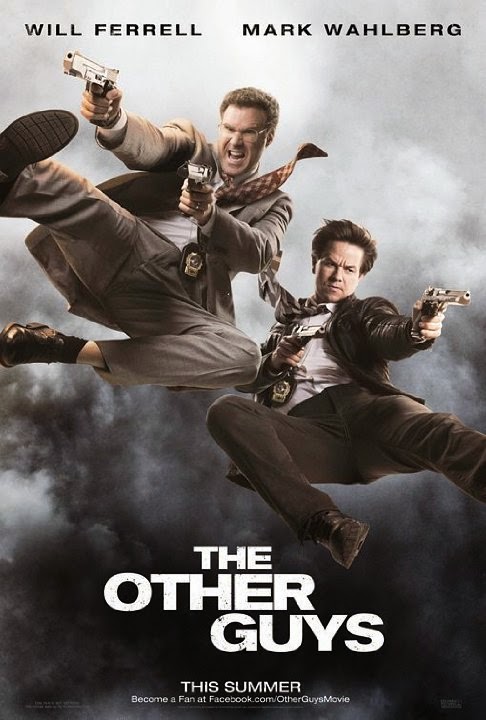Gunnar Nystrom
Ms. Waggoner
Intermediate Composition
9 October 2014
Making
a Prius Look Good
Almost
everyone loves to watch movies. The big businesses and corporations know this
and as a result, they use this knowledge to increase their advertising potential.
When movie stars and celebrities endorse a product, there is usually a direct
relation to an increase in sales. “I absolutely love our Prius. In addition to
being obviously economically and environmentally friendly, they drive great and
are just plain sexy” – Will Ferrell. Will Ferrell is an example of a movie star
who can advertise a product whether being endorsed by the designer of that
product or not. When one looks deeper
into the creation of a film, one can often find a specific marketing campaign
designed in conjunction with the script.
In
the movie, The Other Guys starring
Will Ferrell and Mark Wahlberg, we find a couple of immature cops trying to
land the biggest criminal bust of their lives. Will Ferrell’s character in the
film owns a Prius and in one of the beginning scenes of the movie he takes Mark
Wahlberg’s character driving in it. Mark Wahlberg states, “What the hell is
this?” and Will Ferrell responds, “It’s my car, it’s a Prius”. By including the
model of the car, the film is establishing it’s own logical appeal just because
of the fact that we know that the car is an actual American made vehicle. In
Andrea Lunsford’s book, Everything’s an
Argument, she states how “authority can be conveyed through fairly small
signals that readers may pick up almost subconsciously”(Lunsford 59). When the
audience hears the word Prius, they immediately associate the movie with Toyota
and while they may not realize it, they are subject to advertisement by the
company.
Will Ferrell ends
up driving the Prius straight through the crime scene and the other cops come
up to the window sarcastically announcing, “Prius huh? Good mileage?” On first
notice, this entire scene seems to make the Prius look stupid and immature. But
upon further inspection of Toyota’s marketing campaign for the Prius, we see
that the main goal of the campaign is to acknowledge the gas mileage of the
Toyota Prius. The movie establishes ethos by stating the mileage, while at the
same time making the car seem feminine.
As
the movie continues, there is another Prius dominated scene where Will Ferrell
and Mark Wahlberg are driving the dumb-witted investor, played by Steve Coogan.
What’s interesting to point out is that Will Ferrell is once again driving, and
considering the fact that his character is incredibly feminine and innocent, it
makes the car seem that way as well. This provides the viewer with a slight
emotional appeal because they now begin to associate the car with womanly
characteristics and feelings. In addition more emotional subjection is created with
the emphatic red color of the car and when Will Ferrell turns on a soothing, slightly
feminine tune written by the “Little River Band”.
However, the scene
takes a turn as Will Ferrell steps on the gas and drives through a metal gate
where he begins a car chase. The men who want to kidnap Steve Coogan’s
character are chasing him, but he is able to weave through traffic and escape
oncoming collisions. Mark Wahlberg asks him where he learned to drive like that
and Ferrell yells, “Grand Theft Auto!” In this scene he is surprisingly still
driving in the Prius. By associating Grand Theft Auto with the Prius, the
director brings in a contrasting logical appeal to make it seem like the Prius
can be socially acceptable, and even desired.
At the start of
the movie, it really seems like the director wants to make the Prius appear as
womanly as possible, and yet still continue Toyota’s campaign by pointing out
its car’s great gas mileage. On a larger scale, it’s harder to understand what
Toyota desires from The Other Guys. It
appears that Toyota may have a good sense of humor by allowing the director to
poke some fun at their product in order to sell themselves to a variety of
different people. The Other Guys establishes
its credibility as a comedy, and it seems that the comedy aspect of the movie
is what Toyota is attracted too. If the movie were an action film than no one
would want to see a Prius in the movie, because it is not super fast or super
appealing. Directors as well as the corporations involved must learn to “appreciate
legitimate emotions, particularly when you want to influence the public”
(Lunsford 40). When the directors of the
film are able to realize this, Toyota can slip through the cracks and create
its own advertisement.
When watching the
film normally, I would never have guessed that the Prius was forcibly being
advertised. However, when dwelling deeper into the creation of the movie I can
understand the use of promotion. As a result, I give Toyota and The Other Guys five pickles based on
their marketing success. Movie advertisements are usually discrete and in some
cases the owner of the product is not even paying for the inclusion in the film.
The audience may never know that they are the subjects of an advertisement.





No comments:
Post a Comment